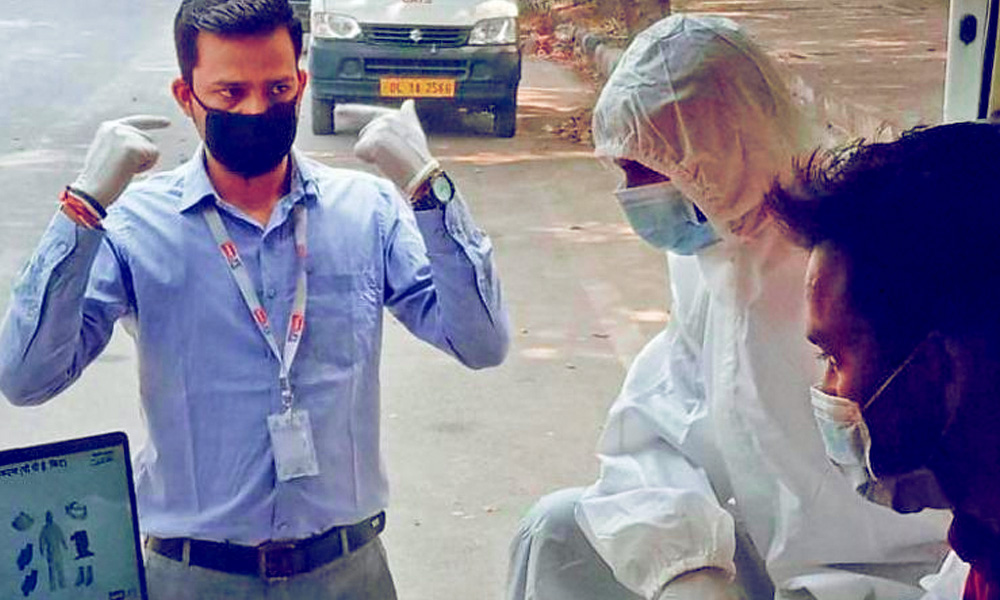
Image Credits: The New Indian Express
Delhi Road Safety Trainer Dedicates Life To Reducing Ambulance Response Time After Son's Death
Writer: Palak Agrawal
Palak a journalism graduate believes in simplifying the complicated and writing about the extraordinary lives of ordinary people. She calls herself a " hodophile" or in layman words- a person who loves to travel.
Delhi, 20 Jan 2021 5:38 AM GMT
Editor : Navya Singh |
Navya writes and speaks about matters that often do not come out or doesn’t see daylight. Defense and economy of the country is of special interest to her and a lot of her content revolves around that.
Creatives : Rajath
A free spirit who find meaning in life with the virtue of creativity and doing job par its excellence, animal lover and traveller by heart.
Shiv Om Singh lost his two-and-a-half-year-old son due to delay in getting access to medical attention after he met with an accident. Realising that the circumstances could have been avoided and lives could be saved, Singh started training people on road safety.
On March 25, 2020, Shiv Om Singh lost his two-and-a-half-year-old son due to delay in getting access to medical attention after he met with an accident. Realising that the circumstances could have been avoided and lives could be saved, Singh decided to invest his time and energy towards the cause and hence reducing casualties.
According to The New Indian Express, the 31-year-old hails from Dehradun and is a Basic Trauma Life Support (BTLS) and a road safety trainer. Within 15 days of the incident, Singh was at the SaveLife Foundation working towards imparting COVID-related training to medical professionals.
"After I lost my son, I realised that access to healthcare in the Golden Hour is very important. I wanted to get back to the field and ensure no one else goes through the trauma of losing a near and dear one due to high response time," Singh said.
"Since May, my team has trained at least 1,000 professionals and I alone have trained 350 personnel," he added.
The crucial 60 minute-period after an accident takes place is the 'golden hour'. As per road safety experts and a number of studies, access to immediate medical attention during this period can curb fatalities. Notably, onlookers in the country are often hesitant to help the road accident victims as they fear interrogation and hassles of the court-room.
Singh was reportedly part of the team which conducted the 'ambulance delay investigation' for the Delhi government. He and his team also developed a special COVID-19 module for training healthcare staff and helped the government in identifying Covid Isolation Centres. Additionally, his team carried out a series of Centralised Accident and Trauma Service (CATS) Ambulance inspections on the protocols being followed and helped distribute sanitisation machines to CATS ambulance operators.
"The investigations involved taking feedback from patients, ambulance drivers and Emergency Medical Technicians (EMTs) to figure out the reasons for delays in admitting patients to hospitals and ways in which it can be resolved," Singh said.
As a result of this and other interventions, the response time of CATS ambulance service improved from 55 minutes to 18 minutes. Moreover, the Delhi government increased the number of ambulances from 160 to almost 600.
 All section
All section














